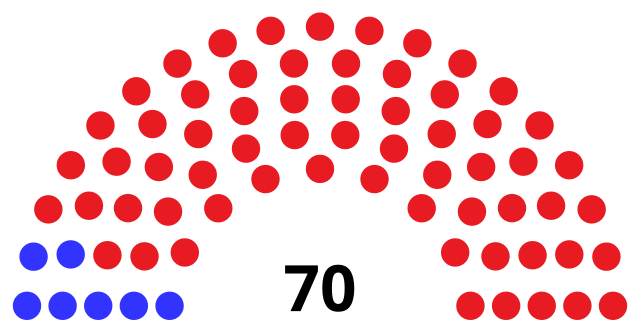The South Dakota House has recently passed a critical bill, HB 1052, effectively prohibiting the use of eminent domain for the construction of carbon pipelines. This legislative move, achieving a 49-19 vote, underscores the state’s dedication to protecting the rights of its citizens, particularly property owners, in the face of expanding energy infrastructure.
Karla Lems, a key representative from Canton and chair of the House Commerce and Energy Committee, spearheaded this legislative initiative. Lems, supported by 45 co-sponsors, has passionately advocated for the sanctity of property rights, citing the Bill of Rights and reiterating that such rights are essential to “the pursuit of happiness.”
Representative Lems has garnered widespread support from property owners throughout South Dakota, whom she affectionately refers to as her “extended family.” This term reflects not only her connection with her constituents but also the widespread concern about landownership and eminent domain issues.
Notably, some opposition arose during the House discussions. Representative William Shorma from Dakota Dunes expressed strong support for the carbon pipeline, emphasizing its potential economic benefits, such as increasing demand for low-carbon fuels. The project, aligned with economic growth narratives, promises to enhance job creation and energy resilience within the state.
However, Shorma acknowledged a crucial judicial milestone: the South Dakota Supreme Court’s ruling that the Summit Carbon Pipeline cannot exercise eminent domain as it is not considered a common carrier. This ruling significantly shaped the legal landscape, reinforcing property rights while challenging infrastructure expansion efforts like the Summit Carbon Solutions project.
A substantial point of contention emerged through Representative Hughes from Sioux Falls, who highlighted potential federal tax credits totaling up to $1.5 billion for Summit Carbon Solutions. He expressed skepticism regarding the opaque ownership structure of the company, emphasizing the ethical dilemma they present: “Summit Carbon Solutions would rather ask for forgiveness than permission and that doesn’t sit well with me.” This transparency issue raises broader questions about corporate governance and accountability.
The bill’s progression underscores its critical acclaim and reflects the legislative will in South Dakota to uphold citizen property rights. Following its passage in the House, HB 1052 will now proceed to be assessed by a Senate Committee. If successful there, it will be further deliberated on the Senate floor before seeking the Governor’s signature to become law.
In the broader regional context, the discussions in South Dakota occur amid developments in neighboring North Dakota. Last month, the North Dakota Industrial Commission approved a plan for extensive underground carbon dioxide storage, despite notable opposition from local landowners. This decision ignited legal challenges spearheaded by the Northwest Landowners Association, contesting the constitutional validity of an ‘amalgamation’ law that mandates landowner compliance if 60% of the land is voluntarily committed.
Such legal battles resonate with South Dakota’s legislative advances, highlighting the intersection between energy infrastructure initiatives and the rights of landowners. Property rights in South Dakota, as championed by representatives like Karla Lems, symbolize a deeper narrative of local identity, resilience, and community-centered governance.
As South Dakota positions itself within the national dialogue on energy infrastructure and environmental responsibility, the legislative decisions unfolding within its borders may set precedents for other states grappling with similar issues. The outcome of HB 1052 will undoubtedly sculpt South Dakota’s future economic and environmental landscape, anchoring its legislative priority on property ownership and citizen rights.
For more information or to join the conversation about South Dakota’s legislative actions regarding eminent domain, contact [email protected].
